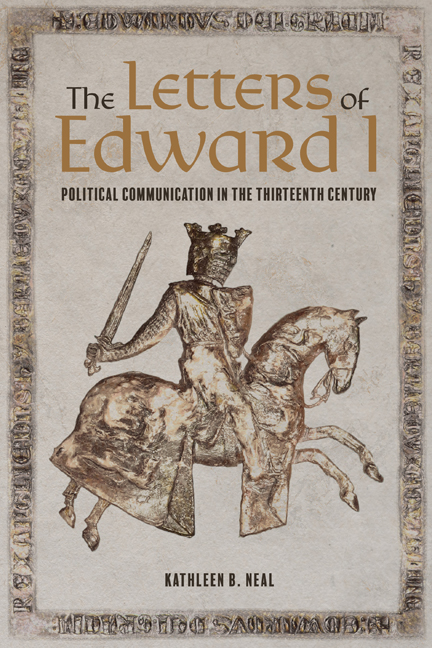Book contents
- Frontmatter
- Dedication
- Contents
- List of Illustrations
- Preface
- Abbreviations
- Introduction: Letters and the Language of Power
- 1 Royal Letters: The Authority of a Form
- 2 Rhetorical Refinement: Epistolary Editing and its Implications
- 3 Announcing the Message: Communities of Reception and Royal Ideology
- 4 ‘Dear Cousin’: Affect and Epistolarity beyond Borders
- 5 Keeping Friends Close: Strategies of Epistolary Alignment
- 6 Rhetoric Under Strain: Re-writing Royal Epistolarity
- Conclusion. Royal Epistolarity: The Voice of the King
- Appendix
- Bibliography
- Acknowledgements
- Index
5 - Keeping Friends Close: Strategies of Epistolary Alignment
Published online by Cambridge University Press: 09 February 2021
- Frontmatter
- Dedication
- Contents
- List of Illustrations
- Preface
- Abbreviations
- Introduction: Letters and the Language of Power
- 1 Royal Letters: The Authority of a Form
- 2 Rhetorical Refinement: Epistolary Editing and its Implications
- 3 Announcing the Message: Communities of Reception and Royal Ideology
- 4 ‘Dear Cousin’: Affect and Epistolarity beyond Borders
- 5 Keeping Friends Close: Strategies of Epistolary Alignment
- 6 Rhetoric Under Strain: Re-writing Royal Epistolarity
- Conclusion. Royal Epistolarity: The Voice of the King
- Appendix
- Bibliography
- Acknowledgements
- Index
Summary
Within the boundaries of royal authority, the king's letters did not need to rely on the kind of friendly framing that characterized diplomatic epistolarity. As Susan Reynolds observed, obedience to royal government was founded on habit: having been accepted as ruler, a king did not have to enforce every instruction directly or violently. Being king weighted every interaction in his favour. It normally required considerable, prolonged provocation to bring about the kind of challenges to royal government that had occurred in the reigns of John and Henry III. Nevertheless, it was important to keep friends close, especially in the aftermath of open rebellion. A wise king cultivated the habit of obedience by regular reiteration of both his own legitimacy and the inextricable connection between his interests and those who upheld his rule. Such messages were vital to the commitment of administrators, the solidarity of the magnates and even the king's own sense of his kingship. In the first two decades of Edward's reign, his administration demonstrated a canny grasp of these imperatives, and was careful to manage and be seen to respond to the expectations of the magnates as a group and as representatives of the community of the realm.
It was not accidental that the work of political alignment took place in letters. The norms of epistolary structure and expression were designed to identify and exploit shared values. As the dictatores taught, the efficacy of letters rested on a credible and worthy representation of sender and recipient respectively, and of their mutual aims. All of the structural and expressive advice of the ars dictaminis was geared toward this end. The perfect royal letter was a mirror in which both king and polity could recognize and take pride in themselves, their relationship and their joint labour. When this was achieved, letters were powerful political tools. By articulating a worthy kingship working in harmony with a loyal aristocracy, letters could reinforce, if not generate, a commonality of purpose at the top of political society.
Magnates did not constitute a large proportion of recipients of royal letters, the majority of which dealt with administrative questions. The archive of the king's letters is dominated by his sheriffs, justices, escheators, clerks, envoys, treasurers, chancellors, seneschals and lieutenants.
- Type
- Chapter
- Information
- The Letters of Edward IPolitical Communication in the Thirteenth Century, pp. 125 - 149Publisher: Boydell & BrewerPrint publication year: 2021



